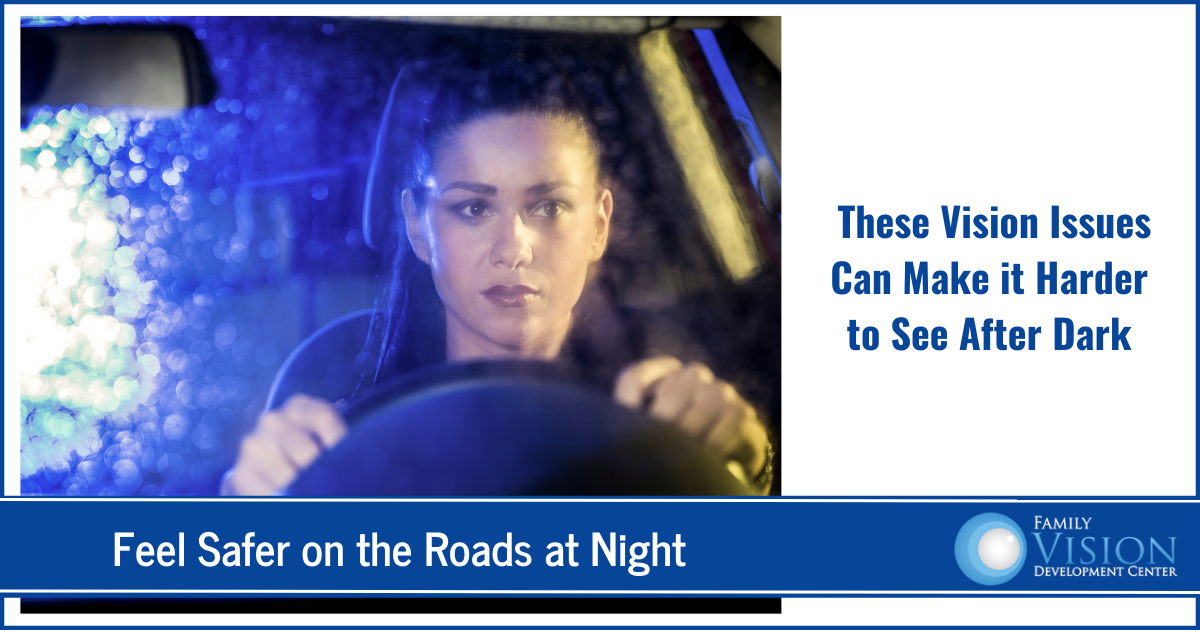For many people, driving at night is no more difficult than driving during the day. But for others, nighttime driving presents additional challenges that they don’t experience when the sun is out. For example, certain vision issues can cause people to see halos around lights or increased glare on the roads. Additionally, they might experience blurred or clouded vision or eye fatigue when driving after dark.
If you experience difficulty driving at night, it may be due to one of the following reasons.
Nearsightedness
The answer to your vision problems at night may be as simple as nearsightedness, or myopia, which causes objects in the distance to be blurred. People with myopia often have difficulty driving at night. If this is the case, prescription eyeglasses or contact lenses could be the solution you need to restore your nighttime vision.
Cataracts
Cataracts occur when the eye’s lens becomes cloudy. This cloudiness causes things to become blurry, hazy or less colorful. Driving at night with cataracts is especially difficult, as they can cause light sensitivity, especially with oncoming headlights, as well as overall problems seeing in dark conditions. Glasses or contact lenses can help improve the symptoms of cataracts. However, if symptoms progress, surgery to remove them is also an option.
Vitamin or Nutrient Deficiency
Perhaps surprisingly, a lack of certain vitamins or minerals can have an effect on the ability to see clearly while driving at night. Vitamin A helps keep the retina healthy, and can be found in carrots and green leafy vegetables. People with low levels of Vitamin A, as is often the case for those with Crohn’s disease or celiac disease, often experience night vision issues. Additionally, a zinc deficiency reduces the positive effects of Vitamin A in the eye, which can contribute to poor night vision. Increasing these important nutrients might help to alleviate some difficulty while driving at night.
Retinal Diseases
Retinitis pigmentosa is a genetic disorder that affects the retina and how it responds to light. Although rare, a main side effect of this disorder is loss of night vision. While your vision may be normal during the day, it may take longer to adjust to the dark, thereby making driving at night much more difficult. A more common retinal disease that can affect night vision is age-related macular degeneration (AMD). One of the first signs of AMD is difficulty seeing at night, which happens during the early stages of this disease. It is important to visit your eye doctor as the first sign of night vision problems, so eye diseases can be detected and treated as early as possible.
Driving at night without proper visual skills can be an obvious safety hazard. If you feel like it is becoming more difficult to see clearly on the road when the sun goes down, please come see us for a vision evaluation. We have the appropriate tests to determine the cause of your nighttime vision problems, as well as effective treatment options to help improve your symptoms. Family Vision Development Center provides a wide range of eye care services for the whole family in a safe, comfortable environment. Give us a call at 630-862-2020 to schedule your appointment today.

